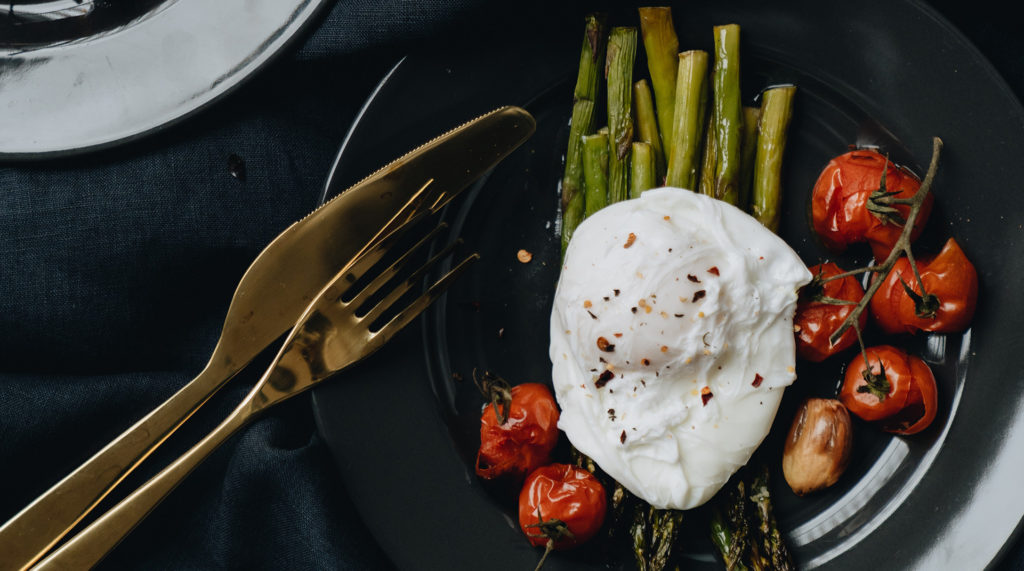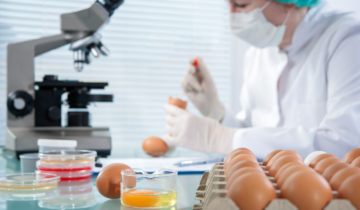Commercial restaurants and institutional caterers are using egg products more and more. They are a great alternative to meat, making them increasingly popular amongst consumers and diners. In parallel, perceptions of animal welfare have also changed, as have expectations concerning organic farming. Consequently, the challenges associated with sourcing are intensifying for professionals who want to satisfy all these demands. How can this be resolved?
Egg production in the United Kingdom and Europe
115 billion eggs were produced in Europe in 2019, equivalent to more than 7 million tonnes. The main egg farming countries are:
- France (14%)
- Spain (13%)
- German (12%)
- United Kingdom (12%)
- Italy (11%)
- Poland (11%)
- Netherlands (9%).
Production methods have changed too, with a significant increase in alternatively farmed eggs. The proportion of caged chicken farms (Code 3) continues to decline, making way for cage-free (Code 2), free-range (Code 1) and organic farming (Code 0). 50% of egg production throughout Europe is Code 3. Germany is at the head of the class, with just 6% Code 3 eggs, a score that is driven by consumer expectations in terms of animal welfare. The United Kingdom is doing well, with just 35% Code 3 eggs.
Although relatively few shell eggs are imported into the UK and Germany, the same cannot be said of egg products. For example, the food service industry is clamouring for liquid egg which can be used to prepare recipes on site, as well as for the convenience and time savings offered by processed egg products. These egg-based products are sourced internationally in order to meet the demand of consumers, more and more of whom are interested in alternatively farmed products. As a result, Germany’s egg product imports rose by 13% between 2013 and 2019.

For restaurateurs, the formats and packaging must be suited to their organization so as to simplify both inventory management and storage. Omelette cubes, IQF half-moon omelettes, liquid eggs and poached eggs are some of the main products which Cocotine exports to the UK. IQF half-moon omelettes, speciality omelettes (Middle Eastern, gourmet, etc.) and fried eggs are some of the main products which Cocotine exports to Germany.
Export quality
Food imports in the European Union are synonymous with verified, recognized health standards. Strict specifications provide a framework for EU production and ensure the traceability of the foodstuffs. The fact that the same guidelines apply guarantees the quality of production conditions, for the peace of mind of restaurateurs and consumers alike.
This is why Cocotine has long been committed to certifying our facilities and our products: BRC (British Retail Consortium) Grade A, GFSI (Global Food Service Initiative), FSSC (Food Safety System Certification) 22000, etc. The quality of our egg products is recognized both in France and at the European level.
The commitment of Cocotine’s farmers is on a par with consumer expectations of egg product quality, in terms of not only flavour but also social and environmental issues. The many alternatively farmed egg products in our co-operative brand’s catalogue and our commitment to animal welfare (in partnership with the NGO WelFarm) are the concrete expression of our desire to offer quality egg products to German / British diners.
Professional chefs do not always have access to the products they need to meet their diners’ expectations. Imports provide a supply which guarantees the best possible service using products of the highest quality!
Take a look at our infographic showing our assessment of alternative farming in Europe
Quelle est la répartition des élevages alternatifs et bio en Europe ? Découvrez le dans notre infographie






